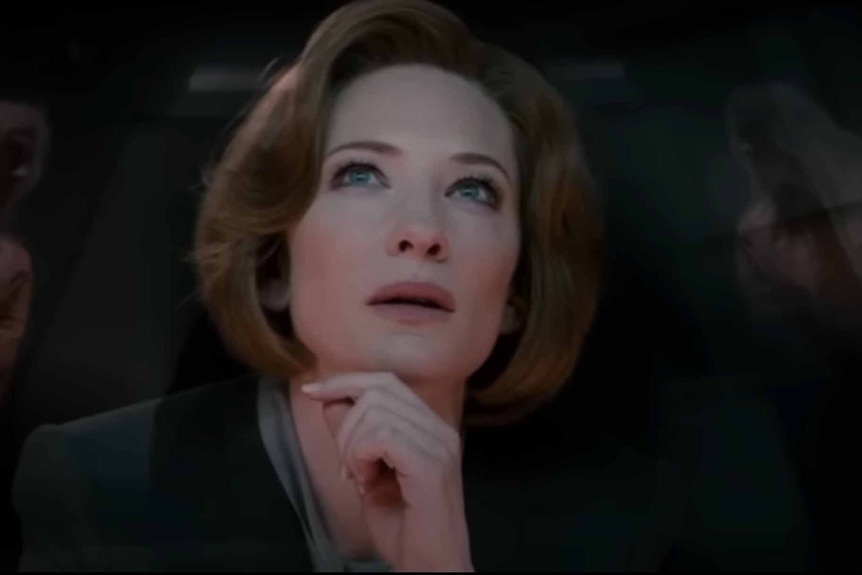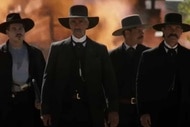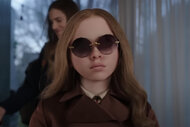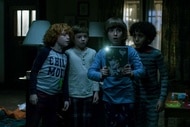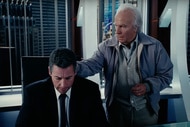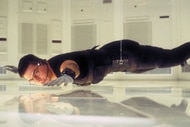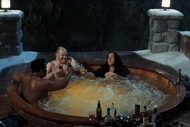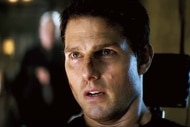Create a free profile to get unlimited access to exclusive videos, sweepstakes, and more!
How David Lynch Inspired the "Surreal" Dark Fairy Tale Atmosphere of Hanna
Get bewitched by Saoirse Ronan’s early-career action thriller as an orphan on the run.
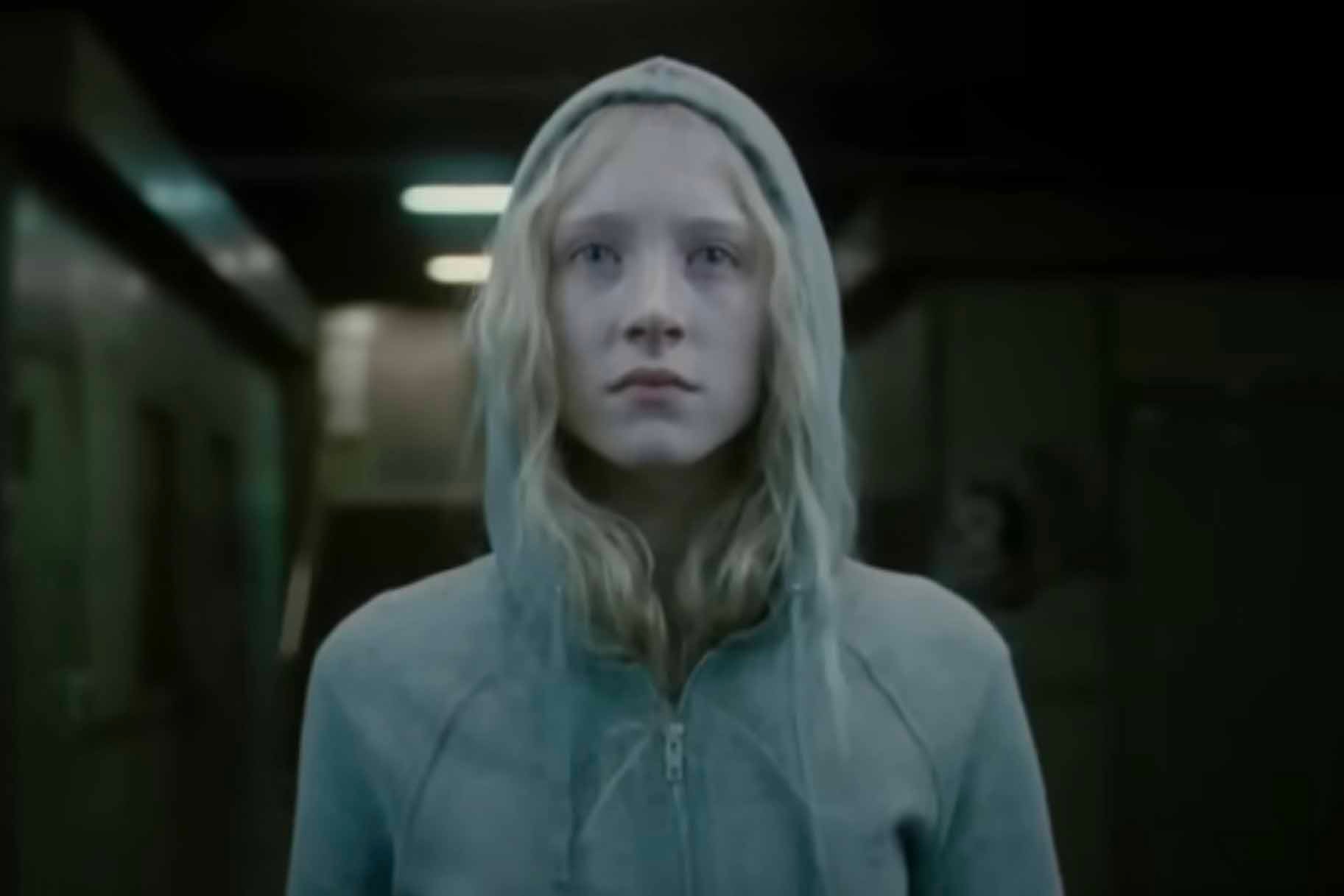
The 2011 film Hanna (streaming on Peacock here) is ostensibly an action movie, but you’ve probably never seen an action flick that plays with atmosphere the way that Hanna does. Directed by Joe Wright (Pride & Prejudice, Darkest Hour) and moodily scored to block rockin’ beats (or, in quieter moments, a hallucinogenic weave of lullaby ambience) by The Chemical Brothers, it seems to operate on a plane of heightened, almost mystical reality.
Surreal might be a better description for how Hanna frames its hunter-stalker action, because it’s the word Wright himself has used to explain the vibe he was striving for in the first place. Inspired by the uncanny atmosphere of freaked-out David Lynch films like Blue Velvet and Eraserhead, Wright powered the movie’s story of a teenaged warrior on the run from dark forces by leaning heavily into the sinister emotional logic of scary fairy tales — tales like the creepy Brothers Grimm children’s classic that Hanna pays overt tribute to in its climactic later moments.
For more on David Lynch:
The Week in Genre History: 'Twin Peaks: Fire Walk With Me' burned David Lynch then became a classic
Denis Villeneuve says he wanted to adapt Dune after being 'half-satisfied' with the David Lynch version
Original Dune director David Lynch has 'zero interest' in new adapation
Saoirse Ronan gets “surreal” in Hanna’s runaway orphan fairy tale
On the surface, Hanna has a setup that you’ve probably seen elsewhere, whether between Nicolas Cage and a young Chloë Grace Moretz in 2010’s Kick-Ass, or perhaps even between Aloy and stoic caretaker Rost in 2017’s Horizon Zero Dawn — a game whose early plot is so closely aligned with Hanna’s that it’s easy to suspect the movie might’ve been running loops in its developers’ heads.
Not yet old enough to vote when Hanna debuted in 2011, a then 16-year-old Saoirse Ronan stars as the film’s titular hero, a girl raised in primitive isolation in the snowy Finnish wilderness by a man named Erik (Eric Bana) who’s seemingly her father. Whoever he is, Erik obviously cares for Hanna, obsessed as he is with rehearsing her incessantly, like some junior super-soldier, for the kind of violent conflicts most normal people only ever see in movies.
Of course, there’s more to their mysterious relationship than Hanna (or the audience, at this point) knows, and soon the two are separated as she’s forced out into the big, bad modern world with only her training — and her suspiciously sharp instincts — to protect her. A shady CIA agent named Marissa (Cate Blanchett) heads up a two-pronged push to track down both fugitives, touching off a tragic chain of events that eventually does give Hanna answers about her parentage and her past. But it all comes with a heavy cost: By the end of the movie, Hanna’s earned her freedom, but lost almost everything else she’s ever known and loved.
Though it essentially plays out as a pair of action-heavy chase stories that cut between each other, Hanna’s real magic is found in the way that Wright voyeuristically lets the audience see her world expanding, as Hanna journeys, for the first time, beyond the sheltering confines of her snowy childhood cottage. All the soldier’s training in the world can’t prepare her for her first real encounter with music, nor with meeting and mingling with Europe’s heterogenous sea of faces, or even simply absorbing the electric bustle of a busy Berlin streetscape. Wright elevates moments like those by leaning heavily into the dreamy hyper-realism of it all, citing his own teenaged awe at the films of David Lynch as one of the movie’s major creative cues.
“There’s an atmosphere to it that is somehow surreal and it almost comes from the subconscious,” Wright shared with Film School Rejects at the time of Hanna’s release, confessing that Lynch — one of his “favorite filmmakers” — had exemplified the vibe in Blue Velvet, “the most magical and extraordinary film that I’d ever seen” when Wright himself was still a teen. “Like fairy tales do, [Lynch’s movies] deal with archetypes and the film characters are very much archetypal characters… There’s kind of a darkness to those fairy tales that I always appreciated.”
The movie directly references its Grimms’ Fairy Tales inspiration several times, but especially drives home the vibe as the action nears its apex. Wright begins to evoke Lynch’s influence in ways that aren’t too hard to miss, in scenes that play out across a creepily abandoned amusement park and even inside a fanciful Berlin house whose impish proprietor suggestively goes by the name of — wait for it — “Wilhelm Grimm.”
While the action reaches a violent crescendo in those locations, Wright’s direction swaps the plausibility of Hanna’s desperate fight-or-flight conundrum for a more slowed-down and surreal peek at how her heightened senses must be processing it all. As Wright separately shared with IndieWire, that was a deliberate creative choice, one he also credited to Lynch.
“There’s something quite mystical about his films, by which I mean there’s something beyond rational appreciation,” he explained. “You can’t really reason with them and you shouldn’t even try. That’s not their point. And I really love that mysticism.”
Hanna is available to stream on Peacock here.
